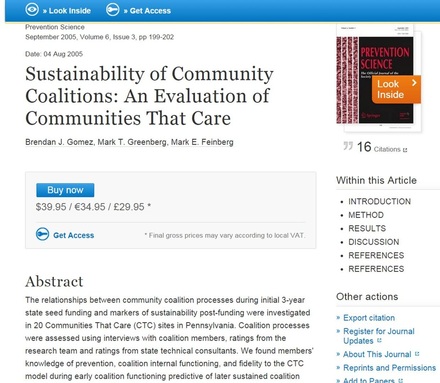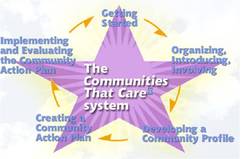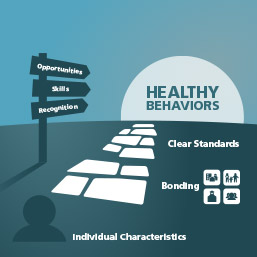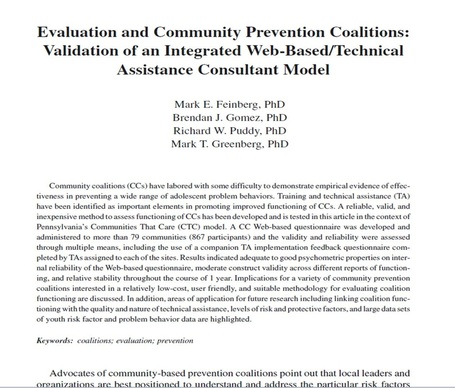Pennsylvania's Communities That Care
Key words: Organizational / Systems Research, Human Development, Social / Community Psychology
Dr Brendan worked with a multi-disciplinary team across the United States on project and research management. In Communities That Care (CTC), the team collaborated with about a hundred communities in intervention programming (applied research) for youth development.
Dr Brendan was involved in understanding Risk & Protective Factors, Pre- and Post Testing, Model Building, Data management, empirical Analyses using SAS and SPSS, Result publications and presentations to various stakeholders.
Dr Brendan was involved in understanding Risk & Protective Factors, Pre- and Post Testing, Model Building, Data management, empirical Analyses using SAS and SPSS, Result publications and presentations to various stakeholders.
Secrets to Sustaining Community-Wide InterventionsAs a Fulbrighter and Doctoral Research Coordinator for Communities that Care (2000 – 2005) - a program that received support of the Governor of Pennsylvania, and recognition by the President – Dr Brendan had the privilege of being part of the team at Penn State’s Prevention Research Center that worked closely with close to a hundred local communities across the state on mobilizing evidence-based programming for youth development.
Dr Brendan's full research findings on CTC is available in the Prevention Science journal at:http://link.springer.com/article/10.1007%2Fs11121-005-0003-4
Abstract The relationships between community coalition processes during initial state seed funding and markers of sustainability post-funding were investigated in 20 Communities That Care sites in Pennsylvania. Coalition processes were assessed using interviews with coalition members, ratings from the research team and ratings from state technical consultants. We found members knowledge of prevention, coalition internal functioning, and fidelity to the CTC model during early coalition functioning predictive of later coalition board activity. Findings suggest areas that prevention researchers can focus on early in coalition functioning in promoting sustainability. An inexpensive way to measure stakeholder functoningDr Brendan had worked with the team in analyzing web-based data and providing reports back to the communities.
Resources & Research are available on Pennsylvania State University's website at:http://www.episcenter.psu.edu/resources#research
To know more about CTC, go to the Wikipedia link below:
|
What is CTC?Communities That Care (CTC) is a prevention system, grounded in science that gives communities the tools to address their adolescent health and behavior problems through a focus on empirically identified risk and protective factors.http://www.blueprintsprograms.com/factSheet.php?pid=9a3e61b6bcc8abec08f195526c3132d5a4a98cc0
According to a 2008 cost-benefit analysis done by the Prevention Research Center at Pennsylvania State University, Pennsylvania’s evidence based programs more than pay for themselves. Furthermore, the programs represent a potential $317 million return to the Commonwealth in terms of reduced corrections costs, welfare and social service burdens, increased employment, decreased drug and mental health treatment, and increased tax revenue. - See more at: http://www.ncjp.org/content/evidence-based-practices-case-study-communities-care-model#sthash.iQ66plwI.dpuf
Improvements in youth development in the community are measured using a state-wide youth survey. See the PA Commission on Crime & Delinquency:http://www.pccd.pa.gov/Juvenile-Justice/Pages/Pennsylvania-Youth-Survey-(PAYS)-2013.aspx#.VCVs2fmSzNm
A 2011 paper indicates that the CTC system can be used to foster translational research. http://www.ncbi.nlm.nih.gov/pmc/articles/PMC3222885/ In a research project that followed 808 ten-year-olds for more than 15 years, the Social Development Strategy was proven successful. http://www.communitiesthatcare.net/how-ctc-works/social-development-strategy/ A reliable, valid, and inexpensive method to assess functioning of Community Coalitions (CCs) has been developed and is tested in the article (see above) in the context of Pennsylvania's Communities That Care (CTC) model. A CC Web-based questionnaire was developed and administered to more than 79 communities (867 participants) and the validity and reliability were assessed through multiple means, including the use of a companion TA implementation feedback questionnaire completed by TAs assigned to each of the sites. Results indicated adequate to good psychometric properties on internal reliability of the Web-based questionnaire, moderate construct validity across different reports of functioning, and relative stability throughout the course of 1 year. Implications for a variety of community prevention coalitions interested in a relatively low-cost, user friendly, and suitable methodology for evaluating coalition functioning are discussed. In addition, areas of application for future research including linking coalition functioning with the quality and nature of technical assistance, levels of risk and protective factors, and large data sets of youth risk factor and problem behavior data are highlighted.
Click on the image of the article above to proceed to journal. |





